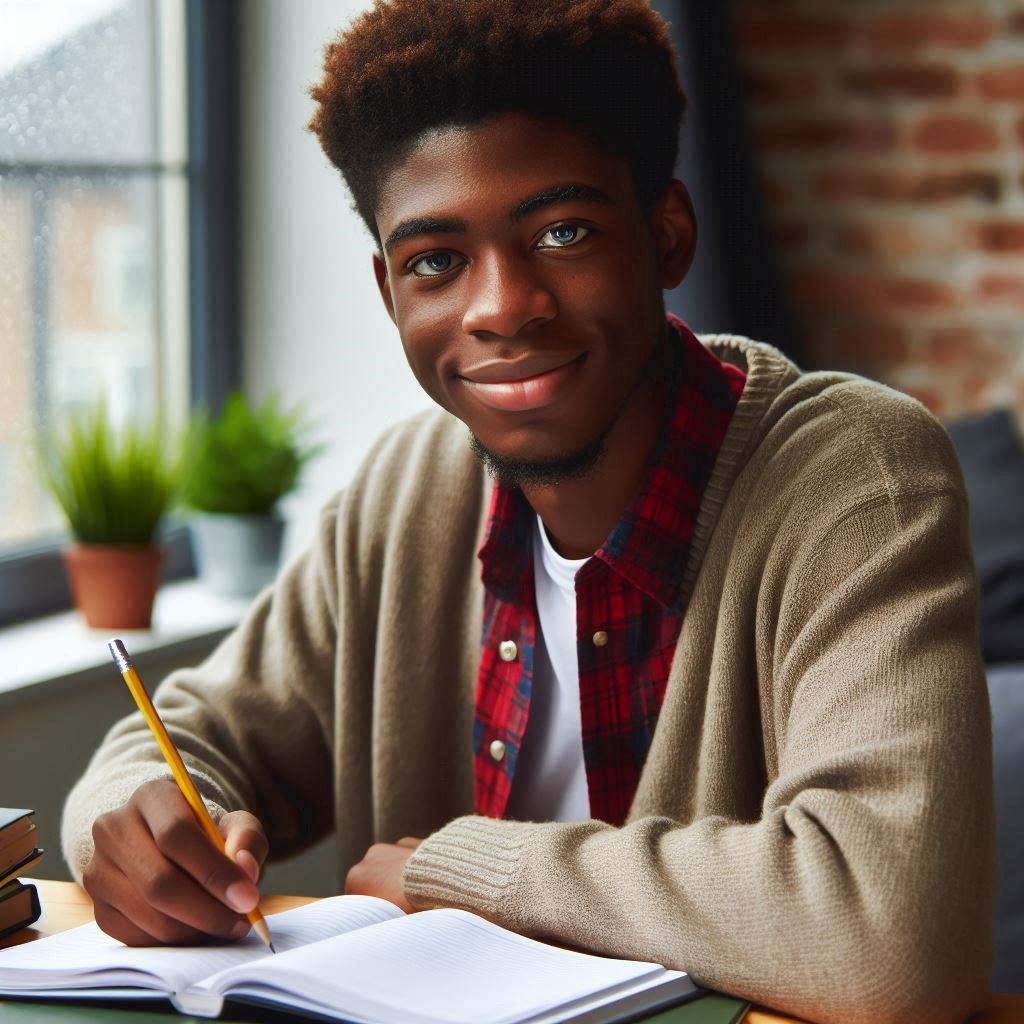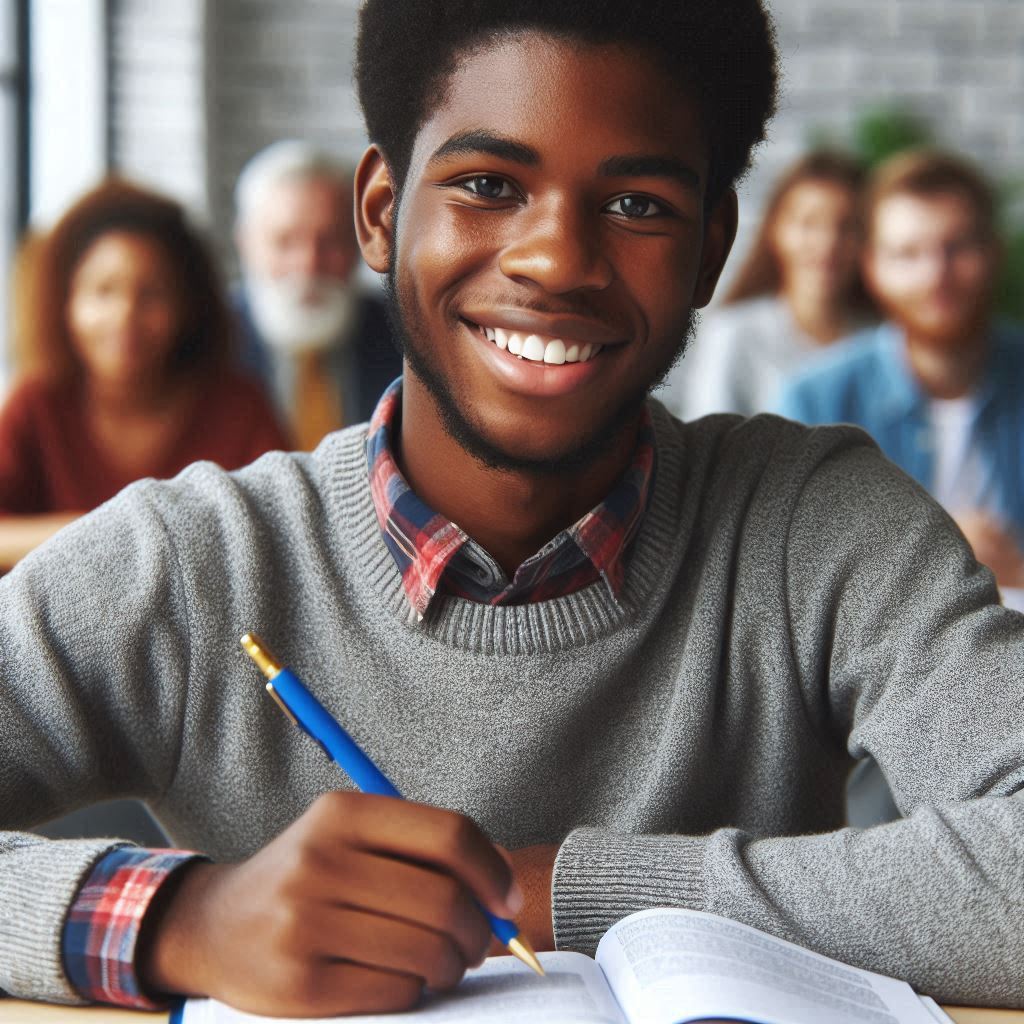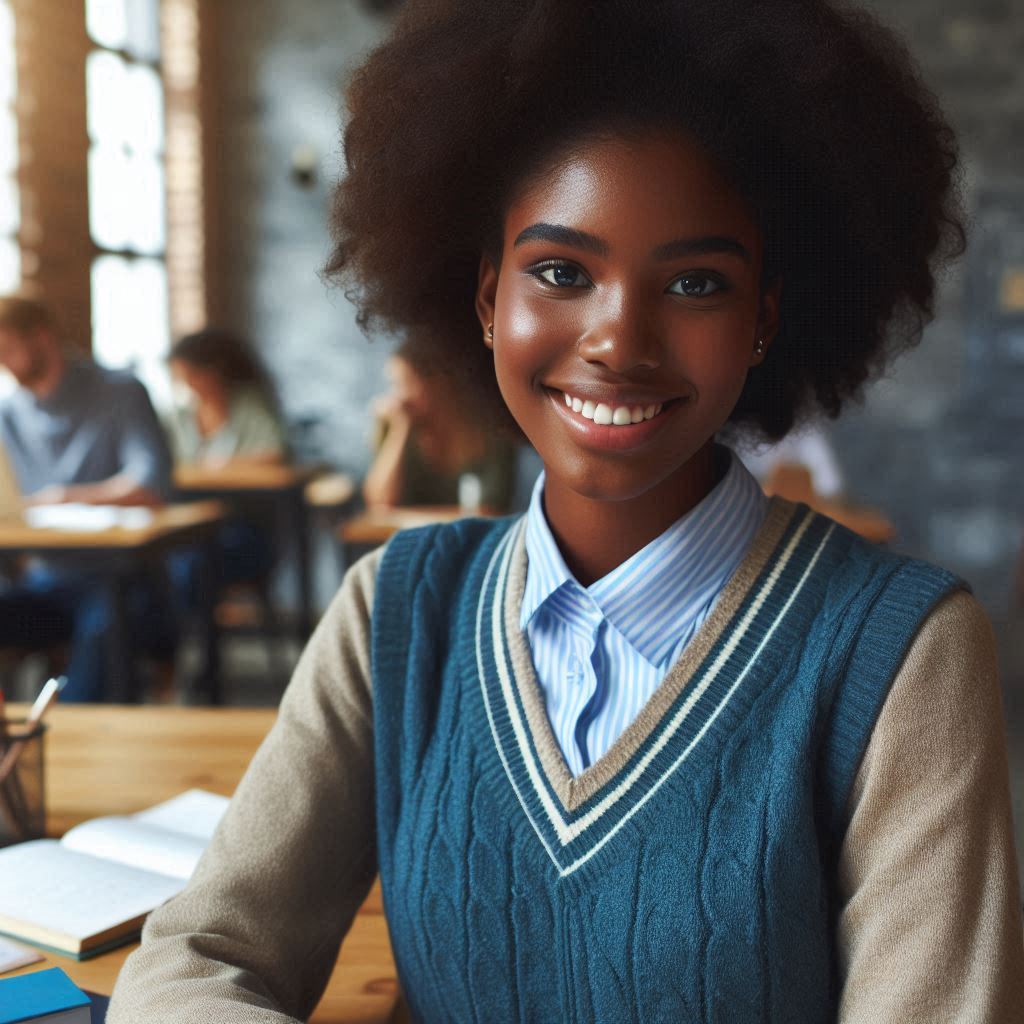Introduction
Special education in Nigeria refers to tailored learning for individuals with disabilities. It is crucial for fostering inclusivity and equitable opportunities.
Individuals with disabilities face unique challenges in accessing education due to diverse needs.
Special education aims to address these challenges through personalized support.
In Nigeria, the landscape of special education is evolving but faces significant hurdles.
Limited resources, inadequate infrastructure, and societal stigma hinder progress.
Despite these challenges, NGOs play a pivotal role in promoting special education across Nigeria.
They advocate for policy reforms, provide teacher training, and offer direct educational support.
NGOs collaborate with government bodies and communities to raise awareness and improve access to special education services.
Their efforts span urban centers and remote rural areas alike.
The importance of special education extends beyond academic achievements.
It enhances social integration, boosts self-esteem, and empowers individuals to lead fulfilling lives.
Currently, special education in Nigeria is at a critical juncture.
There is a growing recognition of the need for inclusive practices and accessibility to educational resources.
As we delve deeper into this topic, we will explore the challenges, successes, and future prospects of special education initiatives in Nigeria.
Each step forward represents a stride towards a more inclusive society.
Stay tuned as we uncover the stories of resilience, advocacy, and transformation within the realm of special education in Nigeria.
Together, we can amplify the voices and aspirations of every individual, regardless of ability.
Role of NGOs in Promoting Special Education in Nigeria
NGOs play a crucial role in promoting special education in Nigeria by providing support, resources, and advocacy for individuals with disabilities.
These organizations are instrumental in ensuring that all children have equal access to quality education, regardless of their abilities.
Definition and Role of NGOs in Nigeria
Non-Governmental Organizations (NGOs) are non-profit organizations that operate independently of the government and are driven by a specific mission or cause.
In Nigeria, NGOs play a vital role in addressing various social issues, including promoting special education.
Examples of NGOs Focusing on Special Education in Nigeria
There are several NGOs in Nigeria that are dedicated to promoting special education and advocating for the rights of individuals with disabilities.
One example is the Inclusive Friends Association (IFA), which works to create inclusive learning environments for children with disabilities.
Another notable NGO is the Disability Rights Advocacy Centre (DRAC), which focuses on advocating for the rights of people with disabilities, including access to education and other services.
Additionally, the Benola Foundation is committed to improving the lives of children and young adults with disabilities through education, healthcare, and other essential services.
Impact of NGOs on Improving Access to Special Education Services
NGOs have had a significant impact on improving access to special education services in Nigeria.
Through their advocacy efforts, these organizations have helped raise awareness about the importance of inclusive education and have worked to remove barriers that prevent children with disabilities from accessing quality education.
NGOs also provide direct support to individuals with disabilities, such as scholarships, assistive devices, and specialized training for teachers.
By partnering with schools, government agencies, and communities, NGOs are able to create a more inclusive and supportive environment for children with disabilities.
Furthermore, NGOs play a crucial role in monitoring and evaluating the implementation of policies and programs related to special education.
They work closely with government agencies and other stakeholders to ensure that the needs of individuals with disabilities are prioritized and adequately addressed.
In fact, NGOs are instrumental in promoting special education in Nigeria by advocating for the rights of individuals with disabilities, providing direct support and resources, and working to create a more inclusive and accessible education system.
With their continued efforts and partnerships, NGOs will continue to make a positive impact on the lives of children with disabilities in Nigeria.
Read: Government Role in Special Education in Nigeria
Challenges Facing Special Education in Nigeria
NGOs play a crucial role in promoting special education in Nigeria by addressing various challenges that hinder the progress of individuals with disabilities.
Lack of Government Funding for Special Education Programs
The inadequate financial support from the government poses a significant challenge for organizations and schools providing special education services.
This lack of funding limits the resources available for students with disabilities, impacting their overall learning experience.
Limited Trained Special Education Teachers
Another critical challenge is the shortage of qualified special education teachers in Nigeria.
The limited number of professionals with expertise in this field hinders the quality of education that students with disabilities receive.
This shortage also leads to larger class sizes and less individualized attention for each student.
Transform Your Career with Expert Guidance
Get personalized mentorship consulting that’s tailored to your unique path. Our expert advice is actionable and exclusive.
Get StartedCultural Beliefs and Stigmas Surrounding Disabilities
Deep-rooted cultural beliefs and stigmas surrounding disabilities in Nigeria contribute to the marginalization of individuals with special needs.
These misconceptions often lead to discrimination and exclusion, making it challenging for students with disabilities to access education and other essential services.
In addressing these challenges, NGOs implementing programs and initiatives to promote special education in Nigeria focus on the following strategies:
Strategies Implemented by NGOs
Advocacy for Increased Government Funding
NGOs advocate for increased government support and funding for special education programs to improve resources, facilities, and services for students with disabilities.
By engaging with policymakers and raising awareness about the importance of inclusive education, these organizations work towards securing sustainable funding for special education initiatives.
Training and Professional Development for Special Education Teachers
NGOs provide training and professional development opportunities for teachers and educators working in special education.
By enhancing their knowledge and skills, these professionals can better support students with disabilities and create a more inclusive learning environment.
Through workshops, seminars, and mentorship programs, NGOs empower educators to address the diverse needs of students with disabilities effectively.
Community Outreach and Awareness Campaigns
NGOs conduct community outreach programs and awareness campaigns to combat cultural beliefs and stigmas surrounding disabilities.
By engaging with local communities and promoting inclusivity and acceptance, these organizations strive to create a more supportive and understanding environment for individuals with special needs.
Through education and advocacy, NGOs work towards changing societal perceptions and attitudes towards disabilities.
Overall, NGOs play a crucial role in promoting special education in Nigeria by addressing the challenges faced by individuals with disabilities.
Through advocacy, training, and community engagement, these organizations work towards creating a more inclusive and equitable society for all.
Read: Nigerian Laws Supporting Special Education

Strategies Used by NGOs to Promote Special Education
NGOs play a crucial role in promoting special education in Nigeria.
They use various strategies to ensure that individuals with disabilities have access to quality education and support.
Some of the key strategies employed by NGOs in promoting special education include:
Advocacy for policy change and increased funding
One of the primary strategies used by NGOs is advocating for policy changes and increased funding for special education programs.
They work with government officials, policymakers, and other stakeholders to push for policies that support inclusive education for individuals with disabilities.
By lobbying for increased funding, NGOs can ensure that resources are allocated to improve special education services and facilities.
Training and capacity building for special education teachers
NGOs also focus on training and capacity building for special education teachers.
They offer workshops, seminars, and training programs to equip teachers with the knowledge and skills needed to effectively support students with disabilities.
By providing professional development opportunities, NGOs help improve the quality of special education instruction and create a more inclusive learning environment for all students.
Providing resources and support for individuals with disabilities
In addition to advocacy and training, NGOs provide resources and support for individuals with disabilities.
This may include educational materials, assistive devices, and access to rehabilitation services.
By offering these resources, NGOs empower individuals with disabilities to overcome barriers to education and succeed in school.
They also provide emotional and social support to help students with disabilities thrive academically and socially.
Overall, NGOs play a vital role in promoting special education in Nigeria through advocacy, training, and support initiatives.
By working collaboratively with stakeholders and communities, NGOs help create a more inclusive and accessible education system for individuals with disabilities.
Read: History of Special Education in Nigeria
Delve into the Subject: Professional Bodies for Counsellors in Nigeria
Find Out More: Government Policies Impacting Biology Education
Success Stories of NGOs in Promoting Special Education
NGOs play a crucial role in promoting special education in Nigeria.
They have been instrumental in providing support, resources, and advocacy for individuals with disabilities.
Here are some success stories of NGOs that have made a significant impact:
Case studies of NGOs that have made a significant impact
One such NGO is the Inclusive Friends Association (IFA), which has been working tirelessly to ensure inclusive education for children with disabilities.
Through their efforts, they have successfully lobbied for policy changes and improved access to education for individuals with disabilities.
Testimonials from individuals who have benefited from NGO services
Many individuals have shared their success stories of how NGOs have transformed their lives.
For example, Mary, a young girl with Down syndrome, was able to attend school for the first time with the help of an NGO that provided her with specialized education and support.
She now dreams of becoming a teacher and inspiring others with disabilities.
Statistics on improvements in access to special education in Nigeria
According to recent data, there has been a notable increase in the enrollment of students with disabilities in schools, thanks to the efforts of NGOs.
In the past five years, the number of special education centers has doubled, providing more opportunities for individuals with disabilities to receive quality education.
Overall, the success stories of NGOs in promoting special education in Nigeria are a testament to the impactful work they do in creating a more inclusive and equitable society for individuals with disabilities.
Read: Overview of Special Education in Nigeria
Collaborations Between NGOs, Government, and Communities
Importance of partnerships in promoting special education
The importance of partnerships in promoting special education cannot be overstated.
Collaborations between NGOs, government, and communities play a crucial role in addressing the needs of individuals with special needs in Nigeria.
Examples of successful collaborations in Nigeria
In Nigeria, several NGOs have partnered with the government and local communities to promote special education.
One such collaboration is between the Special Education Trust Fund (SETF) and the Ministry of Education.
SETF provides funding and resources to support special education programs in schools, while the Ministry of Education oversees the implementation of these programs.
This partnership has led to an increase in the number of special education schools and improved access to quality education for children with disabilities.
Benefits of a collaborative approach in addressing challenges
By working together, NGOs, government, and communities can pool their resources and expertise to provide comprehensive support for individuals with special needs.
This approach involves all stakeholders in decision-making and coordinates efforts to tackle disability challenges.
Furthermore, partnerships help in maximizing the impact of interventions and programs.
Different organizations collaborating can use their strengths and resources to create lasting, impactful solutions for individuals with special needs.
In a nutshell, collaborations between NGOs, government, and communities are essential in promoting special education in Nigeria.
These stakeholders can collaborate to foster an inclusive environment, supporting individuals with disabilities.
They ensure access to necessary education and resources for thriving.
You Might Also Like: Future of Technical Education in Nigeria
Conclusion
NGOs in Nigeria play a crucial role in advancing special education.
They enhance access to education for individuals with disabilities, breaking down barriers that hinder their development.
These organizations foster inclusive environments, ensuring every child receives quality education tailored to their needs.
Through advocacy and support, NGOs raise awareness and challenge societal stigmas surrounding disabilities.
Their efforts empower individuals, promoting independence and inclusivity across communities.
Continued support for these initiatives is essential to sustain progress and expand educational opportunities.
Together, we can build a more inclusive society where every person, regardless of ability, can thrive and contribute meaningfully.




